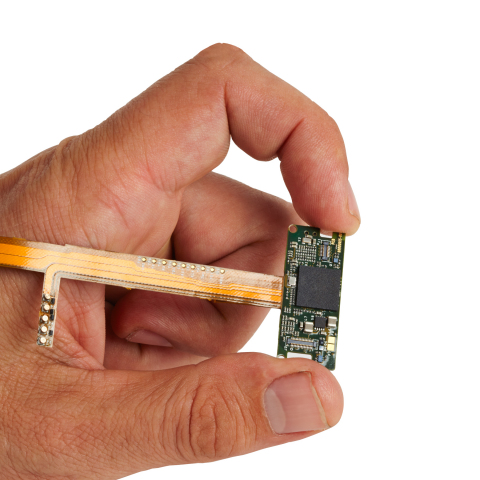
Samsung just put the digital health space on notice with the announcement of their new Samsung Digital Health Initiative based on open hardware and software platforms designed to bring developers, healthcare professionals, academics and health enthusiasts together to create a healthier world.
The new initiative will utilize a new health open reference design platform tailored to take advantage of the latest sensors, behavioral algorithms, battery technologies and displays.
To aggressively support this initiative, Samsung has also announced a $50 million investment fund dedicated to innovative start-ups and technologies in the digital health space. The goal of the fund is to stimulate creative new approaches to digital health and Samsung’s open platforms.
Announced at an event yesterday at San Francisco’s SFJAZZ Center, Samsung’s Strategy and Innovation Center (SSIC) team unveiled the open hardware platform dubbed “Simband” in wearable wristband form factor, showing its ability to gather vital diagnostic information – from your heart rate to your skin’s electrical conductivity, 24 hours a day, 7 days a week. Designed in a modular way, the Simband allows for innovation in areas like battery life, form factor and noninvasive sensor technology. Innovators will be invited to use the reference platform to create and contribute their own advanced sensors, algorithms and other technologies. Samsung’s goal of this approach is to build digital health ecosystem for hardware and algorithms that will enable new technology to be easily incorporated into finished digital health products.
For its open software architecture, Samsung will utilize a cloud based platform called Samsung Architecture for Multimodal Interactions (SAMI) that will serve as a data broker to enable wearable devices like those based on Simband to upload information to the cloud. From there, developers can access the data and leverage it to create entirely new applications. Leveraging its API will break open information silos and give applications and services access to large amounts of data to provide better insights. Under Samsung’s approach, SAMI will allow data to be controlled by the individual generating it and not by third-parties, so that personal health data can be better protected.
The open platforms will be validated for personal health and fitness by University of California, San Francisco (UCSF) as part of their partnership with Samsung to jointly establish the UCSF-Samsung Digital Health Innovation Lab.
“Our bodies have always had something to say but now, with advanced sensors, algorithms and software, we will finally be able to tune into what the body is telling us,” said Dr. Michael Blum, associate vice chancellor for informatics at UCSF. “Validation of these technologies will improve the quality of data collected and help advance the ability to bring new products to market quickly. UCSF is pleased to play an important role in this effort to focus increased technology resources on digital health.”
With rumors of Apple building their own digital health ecosystem with Healthbook, Samsung is looking to gain significant market share in an increasingly crowded and competitive digital health landscape. Now it is Apple’s turn to respond.
Additional information about the Samsung Digital Health Initiative can be available at www.samsung.com/ssic.
